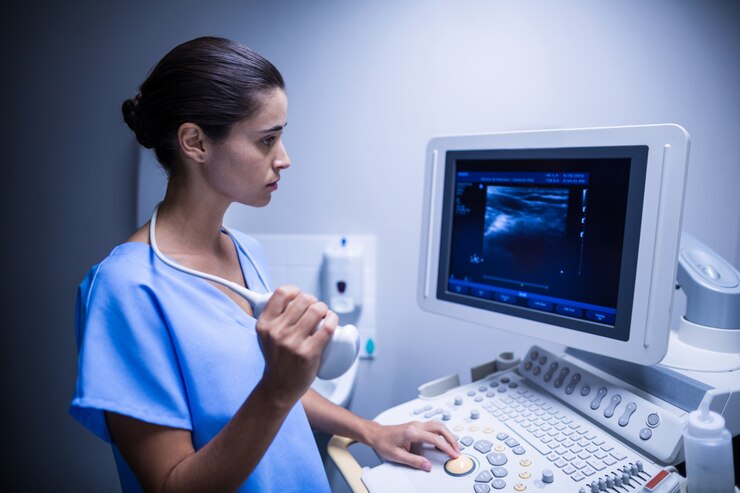In the modern era healthcare is undergoing a profound transformation which is driven by the integration of data science and engineering. From improving diagnostics to streamlining hospital operations, data-driven innovations are reshaping the way healthcare is delivered. If you’re an engineering student from the top private college for engineering in Jaipur, understanding how data science plays a pivotal role in healthcare engineering can open up exciting career opportunities. Let’s explore how this technological synergy is revolutionizing the industry.
The Intersection of Data Science and Healthcare Engineering
Healthcare engineering focuses on designing and implementing solutions that enhance medical systems, devices and infrastructure. Data science has become a crucial tool in optimizing healthcare services that improve patient outcomes, and reduce costs.
Data science involves the use of algorithms, machine learning, and statistical models to analyze vast amounts of medical data. This helps healthcare professionals make data-driven decisions which leads to more accurate diagnoses, effective treatments and enhanced patient care.
Key Areas Where Data Science is Transforming Healthcare Engineering
1. Predictive Analytics for Early Disease Detection
One of the most significant breakthroughs in healthcare data science is predictive analytics. Machine learning algorithms can identify patterns that indicate early signs of diseases such as cancer, diabetes and heart conditions by analyzing historical medical records and real-time data.
For example AI-powered tools can detect anomalies in X-rays, MRIs and CT scans with higher accuracy than human radiologists. This early detection allows doctors to intervene sooner and increase the chances of successful treatment and reduce mortality rates.
2. Personalized Medicine and Treatment Plans
Treatments have followed a one-size-fits-all approach. However data science has paved the way for personalized medicine where treatments are tailored to an individual’s genetic makeup, lifestyle and medical history. By analyzing genetic data, AI models can predict how a patient will respond to certain medications and minimize adverse effects along with maximizing effectiveness.
For instance cancer treatments like immunotherapy are now being customized based on a patient’s specific genetic profile which significantly improves success rates.
3. Optimizing Hospital Operations
Healthcare facilities generate an enormous amount of data daily from patient records to resource management logs. Data science helps hospitals optimize operations by predicting patient admission rates, managing staff schedules and ensuring efficient use of medical equipment.
For example predictive models can forecast patient inflow during flu seasons that allow hospitals to allocate resources effectively and prevent overcrowding.
4. Medical Robotics and AI-Assisted Surgeries
With the integration of artificial intelligence (AI), robotic-assisted surgeries have become more precise and less invasive. Data-driven robots such as the Da Vinci surgical system allow surgeons to perform complex procedures with greater accuracy and reduce recovery time for patients.
AI also assists in decision-making during surgeries by providing real-time data insights which ensure optimal outcomes and minimizing complications.
5. Drug Discovery and Development
Developing new drugs is a time-consuming and expensive process. Data science accelerates drug discovery by analyzing molecular structures, predicting drug interactions and identifying potential compounds for new treatments.
During the COVID-19 pandemic AI-driven models played a crucial role in identifying existing drugs that could be repurposed to combat the virus while significantly shortening the time required for treatment development.
6. Wearable Technology and Remote Monitoring
Smartwatches and wearable health devices have revolutionized patient monitoring. These devices collect real-time health data such as heart rate, oxygen levels and activity levels that allows doctors to track patients remotely.
For instance AI-powered ECG monitoring can detect irregular heart rhythms and alert healthcare providers before a major cardiac event occurs which can potentially save lives.
7. Reducing Healthcare Costs and Enhancing Efficiency
Data science helps in cost reduction by minimizing unnecessary tests, optimizing supply chain management, and reducing hospital readmission rates. By analyzing patient data, hospitals can identify high-risk patients and implement preventive measures, thereby reducing the financial burden on healthcare systems.
Challenges in Implementing Data Science in Healthcare Engineering
While data science offers incredible benefits, there are several challenges that healthcare engineers and data scientists must address:
- Data Privacy and Security: Patient data is highly sensitive, and ensuring its confidentiality is crucial. Strict data protection regulations, such as HIPAA and GDPR, must be adhered to.
- Integration with Existing Systems: Many healthcare facilities still use outdated systems that may not be compatible with modern data analytics tools.
- Bias in AI Algorithms: Machine learning models can sometimes reflect biases present in training data, leading to inaccurate predictions or unfair treatment recommendations.
- High Implementation Costs: Developing and deploying AI-driven healthcare solutions require significant investment in infrastructure and expertise.
The Future of Data Science in Healthcare Engineering
The future of healthcare engineering lies in further advancements in data science, AI, and automation. Some emerging trends include:
- AI-Powered Virtual Assistants: Chatbots and virtual healthcare assistants will improve patient engagement and provide 24/7 support for medical inquiries.
- Blockchain for Secure Health Data Management: Blockchain technology will enhance data security, ensuring that patient records remain tamper-proof and accessible only to authorized personnel.
- Advanced Genomic Research: AI will continue to revolutionize genetic research, leading to breakthroughs in treating genetic disorders and rare diseases.
- Smart Hospitals: AI-driven automation will optimize hospital management, reducing administrative burdens and enhancing patient experiences.
Conclusion
Data science is reshaping healthcare engineering by improving diagnostics, treatment planning, hospital operations, and patient care. As an engineering student, understanding the intersection of healthcare and data science from the leading engineering college in Jaipur can unlock new career pathways in medical AI, bioinformatics, and healthcare analytics.
The demand for data-driven solutions in healthcare is growing, and those who equip themselves with skills in AI, machine learning, and data analysis will play a vital role in the future of medicine. If you’re looking for a field where engineering meets real-world impact, healthcare data science is an exciting and rewarding domain to explore.


